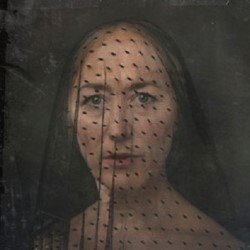
The memory of President Lincoln is widely revered – there is even statue of him in Edinburgh – but the First Lady who supported him through the Civil War is forgotten in Scotland and reviled in America. Mary Lincoln was a woman who suffered repeated personal losses and tragedy and betrayal. And all this was reinforced by the loathing of an American establishment which appropriated and twisted the realities of her life. Mrs President, a powerful and well-received new Fringe production, gives Mary her own voice for the first time.
The American Civil War Statue (also known as the Scottish-American Soldiers Monument), in Old Calton Burial Ground, dates back to 1893 and commemorates Lincoln and the Scots volunteers who fought and died in the brutal Civil War that succeeded in ending slavery.
It emphasises the strength of the links between Scotland and America. Indeed this was the first statue to a US president outside the country’s borders and the only one to commemorate the Civil War.
LeeAnne Hutchison, who plays Mary Lincoln in Mrs President, visited the monument during the early part of the show’s run at the Fringe. It was an act that highlighted the power of the arts – from sculpture to drama – to shape perceptions. In some cases this reinforces and builds social or political opinion, in others it challenges them.
Mrs President takes audiences into the world of Mary Lincoln, who was highly active in rallying support for her husband, and was sitting hand-in-hand with him at the theatre when he was shot in the head by an assassin.
Her life was torn by tragedy and mental ill health. She was tormented by the death of her children, grief stricken after staying by Abraham’s side for hours as he died and later tormented by cruel accusations.
Sadly, her place in history is as one of America’s most reviled First Ladies.
The play, by writer and artist John Ransom Phillips, sees Mary enlist celebrity photographer Mathew Brady – whose images of Abraham Lincoln helped win him the Presidency – to recast her image and silence Washington. This was a man of immense influence – his battlefield pictures defined the American Civil War and his wider work helped forge the USA’s national identity. Tensions rise as subject and artist clash over creative control.
It’s a production that explores identity, agency, and the power of representation – of narrative – and ultimately of legacy. It gives Mary her own voice for the first time.
Phillips says: “Mary Lincoln is the most vilified First Lady in American history. The Edinburgh Fringe is the ideal place to take a fresh look at her story and to begin changing her place in history.
“There are powerful connections between Edinburgh and the Lincoln presidency, with Scots having volunteered to fight to help end slavery. And the city is home to the greatest performing arts festival in the world.
“This play shows Mary as a woman in the grip of profound grief – she had buried three sons, saw the assassination of her husband and was then betrayed by her remaining son.
“Viewing her through modern eyes, and through Mathew Brady’s outdated lens, holds lessons for us. Controlling your image is precarious, and Mrs. President shows us just how hard it can be.”
Director Lily Wolff goes further, identifying Mary as a strong woman who was condemned, in part, for failing to submit to social norms.
She says: “Mary Lincoln haunts me. Her brilliance and depth of feeling meant she didn’t fit in the box society assigned her.
“Sadly we still perpetuate dehumanising narratives about this First Lady, failing to recognise the terrible losses she endured. Mary’s life was full of ghosts.”
Born to a wealthy slave-owning Kentucky family Mary was a devoted supporter of her husband. Of their four sons only one outlived her, with two dying as children and one at 18.
In later life her behaviour became erratic, she was briefly confined by her remaining son to an insane asylum. Deeply depressed Mary tried to take her own life and endured worsening physical health. Rather than being understood as vulnerable she was damned as “crazy”.
The play takes audiences into Brady’s studio where Mary traverses her life story. Under his focus, she is forced to explore who she truly is, regardless of history’s limited view.
Perhaps one of the most poignant aspects of the play is not that it plunges us back into the attitudes and issues which brought about the American Civil War, but the degree to which we hear echoes of all that’s taking place in the culture wars of today.
Full show and booking details here.


















































